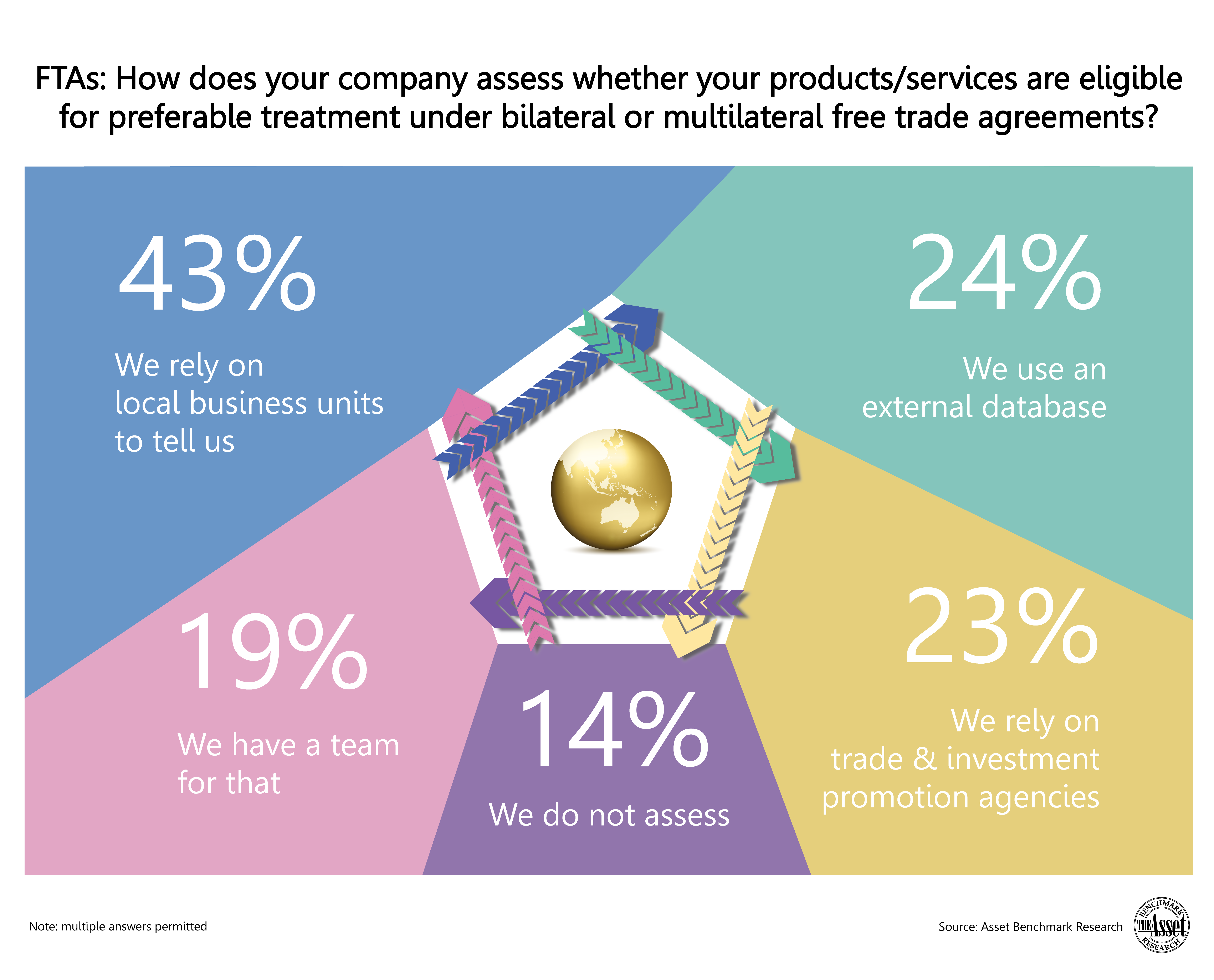Asian corporates are showing greater familiarity with the web of free trade agreements (FTAs) spanning Asia, Asset Benchmark Research finds. The majority of corporates polled in a recent survey reveal that more companies are assessing whether their products or services are eligible for preferable treatment under bilateral or multilateral FTAs. Only 14% of corporates suveyed do not.
Asia is the focus of one of the largest free trade agreements currently being negotiated: the Trans-Pacific Partnership (TPP). But the region is already home to multiple bilateral and regional agreements, including the largest FTA globally by population and third largest by trade volume. The Asean-China Free Trade Agreement (ACFTA), signed in 2002 and in full effect since 2015, has reduced tariffs on more than 7,000 products traded between China and Southeast Asia.
Two years ago, HSBC research showed that among 800 exporters in Asia, 44% admit they have limited or no understanding of FTAs. Only one in four of them utilized FTAs applicable to their business, on average. That was despite the fact that 93% of corporates that do use FTAs witnessed increased exports.
In light of this troubling underutilization of FTAs, Asset Benchmark Research asked 1,123 corporates in Asia to comment on their assessment practices of FTAs with respect to the products and services they export. 43% of respondents, many of which are executives with regional roles, rely on local business units in their markets to conduct and share research on how FTAs apply to their products.

Nearly a fourth said they employ an external database such as Thomson Reuters’ ONESOURCE to identify opportunities FTAs offer. Nearly the same percentage relies on trade and investment promotion agencies. Nearly one in five (19%) even have a dedicated team at their disposal to navigate the complex web of FTAs.
The research formed part of the 2016 Treasury Review, carried out in the first quarter of this year. Click here learn more about Asset Benchmark Research.
― Additional reporting by Jacky Fung and Colleen Tin









